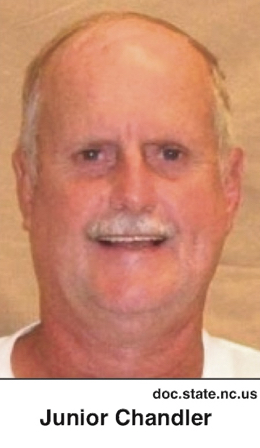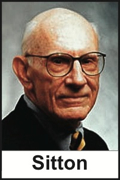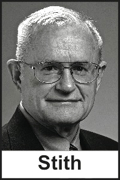Rascals case in brief
In the beginning, in 1989, more than 90 children at the Little Rascals Day Care Center in Edenton, North Carolina, accused a total of 20 adults with 429 instances of sexual abuse over a three-year period. It may have all begun with one parent’s complaint about punishment given her child.
Among the alleged perpetrators: the sheriff and mayor. But prosecutors would charge only Robin Byrum, Darlene Harris, Elizabeth “Betsy” Kelly, Robert “Bob” Kelly, Willard Scott Privott, Shelley Stone and Dawn Wilson – the Edenton 7.
Along with sodomy and beatings, allegations included a baby killed with a handgun, a child being hung upside down from a tree and being set on fire and countless other fantastic incidents involving spaceships, hot air balloons, pirate ships and trained sharks.
By the time prosecutors dropped the last charges in 1997, Little Rascals had become North Carolina’s longest and most costly criminal trial. Prosecutors kept defendants jailed in hopes at least one would turn against their supposed co-conspirators. Remarkably, none did. Another shameful record: Five defendants had to wait longer to face their accusers in court than anyone else in North Carolina history.
Between 1991 and 1997, Ofra Bikel produced three extraordinary episodes on the Little Rascals case for the PBS series “Frontline.” Although “Innocence Lost” did not deter prosecutors, it exposed their tactics and fostered nationwide skepticism and dismay.
With each passing year, the absurdity of the Little Rascals charges has become more obvious. But no admission of error has ever come from prosecutors, police, interviewers or parents. This site is devoted to the issues raised by this case.
On Facebook
Click for earlier Facebook posts archived on this site
Click to go to
Today’s random selection from the Little Rascals Day Care archives….
Click for earlier Facebook posts archived on this site
Click to go to
Today’s random selection from the Little Rascals Day Care archives….
Chandler’s sentence designed to lock him up forever
 Nov. 8, 2015
Nov. 8, 2015
“The latest obstacle to Gerald Amirault’s freedom came without fanfare. A three-member panel of the Massachusetts Department of Corrections has now decided that, since the prisoner has refused participation in treatment programs for sex offenders, he was considered to be ‘in denial.’ Permission for him to appear before the Board that could grant early parole would therefore be denied.”
– From “How to Extort a Confession” in the Wall Street Journal (April 22, 2002)
Steadfast in his supposed “denial,” Amirault wouldn’t be paroled until 2004 – 18 years into his 40-year sentence.
Compared with Junior Chandler, however, he was lucky. Chandler’s two consecutive life sentences have made him ineligible for parole. For a brief moment during his long and maddening appeals process, in 2008, it seemed those life sentences would be made concurrent – thus qualifying him for parole consideration. But a switch in judges, orchestrated by the attorney general’s office, vaporized that prospect.
A footnote: The North Carolina Department of Correction has its own Sexual Offender Accountability and Responsibility program. “Through psycho-educational modules, behavior techniques and empathy training,” its website says, “S.O.A.R. participants learn that sexually abusive behavior is both controllable and manageable.”
Junior Chandler recalls having been invited to participate, but …. “They said I had to admit I was guilty. I told them I couldn’t do that, because I hadn’t done anything…. What would you do?”
Could N&O have thwarted ‘prosecutor gone wild’?
 March 18, 2013
March 18, 2013
“When I look back, I think my greatest mistake (was) my failure as editor of the News & Observer to make sure we had a top-notch investigative reporter on the Little Rascals case in Edenton.
“Our regional person was adequate as a regional correspondent, a full-time staffer, but he was not the person to see what was wrong with this case and to do the necessary digging to root it out.
“That prosecutor had gone wild, eaten up by ambition, I suppose, to hang these people, these people who operated the Little Rascals Day Care Center, no matter how.
“…All the kids talked about being borne through the air this way and that way and flying all over, and it was crazy stuff.
 “As it turned out, (the Edenton Seven were eventually released), but it wrecked their lives forever. And I still feel sorry about that, still feel sorry about it.
“As it turned out, (the Edenton Seven were eventually released), but it wrecked their lives forever. And I still feel sorry about that, still feel sorry about it.
“I think had we sent someone like Pat Stith down there, that would have been it.
“But see, at that time, Edenton already was a pretty far reach for the News & Observer…. (Our) pulling out of eastern North Carolina (to cut expenses) might have affected my thinking (about) whether we were really responsible for doing something about that miscarriage of justice.”
– From an interview with Claude Sitton, editor of the Raleigh News & Observer from 1968 to 1990 (Southern Oral History Program, Southern Historical Collection, UNC Chapel Hill, July 12, 2007)
Memphis paper first to link ‘satanic ritual abuse’ cases
 Jan. 4, 2019
Jan. 4, 2019
In January 1988 the Memphis Commercial Appeal published a 36-page special section recapping its recent series, “Justice Abused: A 1980s Witch Hunt” by Tom Charlier and Shirley Downing.
“Justice Abused” was the first major news coverage to link “satanic ritual abuse” cases across the country and to
characterize them as a witch hunt.
In his Pulitzer Prize-winning criticism of how the news media so often mishandled cases such as McMartin Preschool, David Shaw of the Los Angeles Times credited Charlier and Downing with pointing out “among many other things, the large number of child molestation cases that had resulted in dismissals, acquittals and dropped charges and the startling number of similarities among many of the cases.
Children in both the Memphis and McMartin cases, for example, told of druggings, of animal mutilations, of trips in vans, of bloody rituals, of sacrifices of babies and of being taken on airplanes that resembled those of Federal Express.”
Until now this historically important series has not been available digitally. It is archived in two pieces here and here on our Bookshelf.
![]()
Prosecutor believed he had closed the deal early on
March 22, 2013
“’There are some people who said we could have stopped after the first child testified.”
– District Attorney H.P. Williams Jr., expressing confidence that the jury was being persuaded by the state’s stream of child-witnesses against Bob Kelly, The Associated Press, Dec. 9, 1991











0 CommentsComment on Facebook